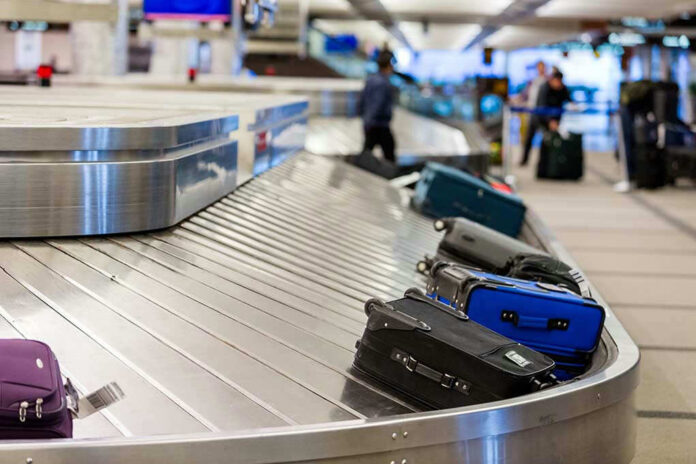
Global wildlife trafficking is spiraling out of control as border authorities abroad intercept nearly 200 exotic animals smuggled in a suitcase—raising urgent questions about border security, biosecurity threats, and the failure of global enforcement against illegal trade.
Story Snapshot
- Israeli customs officials at Ben-Gurion Airport seized 186 exotic animals, including snakes and lizards, packed into a suitcase arriving from Thailand.
- The animals, valued at thousands, endured freezing temperatures and starvation during transit, highlighting the cruelty of the illegal trade.
- This case exposes the global scale of wildlife trafficking and the challenges faced by border security and biosecurity agencies worldwide.
- Authorities are investigating the smuggling network and treating the rescued animals, many of which remain in critical condition.
Major Exotic Animal Bust at Ben-Gurion Airport Exposes Global Trafficking Crisis
On November 13, 2025, Israeli customs authorities at Ben-Gurion Airport intercepted a 24-year-old Israeli man attempting to smuggle 186 exotic animals from Thailand, including reptiles and arthropods. The animals, discovered during a routine luggage inspection, were packed into a single suitcase and found in poor condition after suffering freezing temperatures and lack of food. This shocking bust underscores the relentless demand for exotic pets and the lengths traffickers will go to bypass international law, raising alarms about the efficacy of border controls and the global reach of these criminal networks.
Israeli man busted at Tel Aviv airport allegedly trying to smuggle nearly 200 exotic animals worth thousands in suitcase: photos https://t.co/uumh7UJws1 pic.twitter.com/BHHM8GSBbs
— New York Post (@nypost) November 14, 2025
Authorities immediately seized the animals and detained the suspect, who is believed to have been motivated by the lucrative black market for exotic wildlife. These illegal trades undermine legitimate commerce and conservation efforts, and the incident’s scale—the largest of its kind in recent memory—illustrates the persistent threat posed by organized smuggling rings. Israeli officials, including the Nature and Parks Authority and the Ministry of Agriculture, are now tasked with rehabilitating the animals and investigating the broader network behind this attempt.
Wildlife Trafficking: A Persistent Threat to Security and Sovereignty
This case highlights the global challenge of wildlife trafficking, an industry driven by international demand for exotic pets, traditional medicine, and luxury goods. Israel, like many nations, faces ongoing attempts to illegally import rare animals, often at the expense of animal welfare and public safety. Ben-Gurion Airport, the country’s main international gateway, has become a critical frontline in the war against smuggling. Past incidents, including a similar seizure of 140 reptiles earlier this year, reveal a pattern of repeat offenses and the need for constant vigilance at the border.
The diversity and number of species trafficked—including snakes, turtles, and lizards—present unique biosecurity risks, such as the introduction of invasive species and new diseases. With many animals in critical condition, the case also underscores the cruelty inherent in the trade and the urgent need for international cooperation to combat these crimes. Agencies responsible for wildlife protection are calling for tightened customs inspections, better detection technologies, and stronger penalties for offenders to deter future incidents.
Implications for U.S. Policy and Border Security
For American conservatives, this event serves as a stark warning about the consequences of weak border enforcement and the dangers posed by global criminal networks. As President Trump’s administration works to secure America’s borders, incidents like this one abroad demonstrate why strong border controls and robust customs enforcement are non-negotiable for national security and biosecurity. The failure to stop such trafficking not only threatens animal welfare but also exposes the public to ecological and health risks—reminding citizens that open borders and lax enforcement are a direct threat to American values, sovereignty, and family safety.
Law enforcement agencies and policymakers in the U.S. should draw lessons from this case: prioritize the integrity of our borders, support law enforcement with the resources needed to combat smuggling, and remain vigilant against any agenda that weakens our security or undermines the Constitution. The fight against illegal trafficking is not just about animals—it is about defending national interests, protecting communities, and upholding the rule of law.
Expert Analysis: Calls for Tougher Enforcement and Global Cooperation
Experts agree that wildlife trafficking is both a moral and security crisis. Conservation biologists, customs officials, and legal scholars all point to the urgent need for stricter enforcement, public education, and international intelligence sharing. Without decisive action, these criminal enterprises will continue to exploit loopholes and endanger both wildlife and people. The recent seizure in Israel should galvanize policymakers worldwide—especially in nations that value law and order—to strengthen their defenses against illegal trade and reaffirm their commitment to upholding sovereign borders and traditional values.
As the investigation into this smuggling attempt continues, the hope is that the rescued animals will recover and that authorities will dismantle the networks responsible. For conservatives, this case is a powerful reminder: border security, rule of law, and vigilant enforcement are central to protecting our nation from all manner of threats—whether from traffickers, globalists, or anyone seeking to erode America’s foundations.
Sources:
Man smuggles nearly 200 exotic animals stuffed in his luggage: see the wild photos – Fox News
Man Caught With 186 Exotic Animals Stuffed in His Suitcase – TPS












